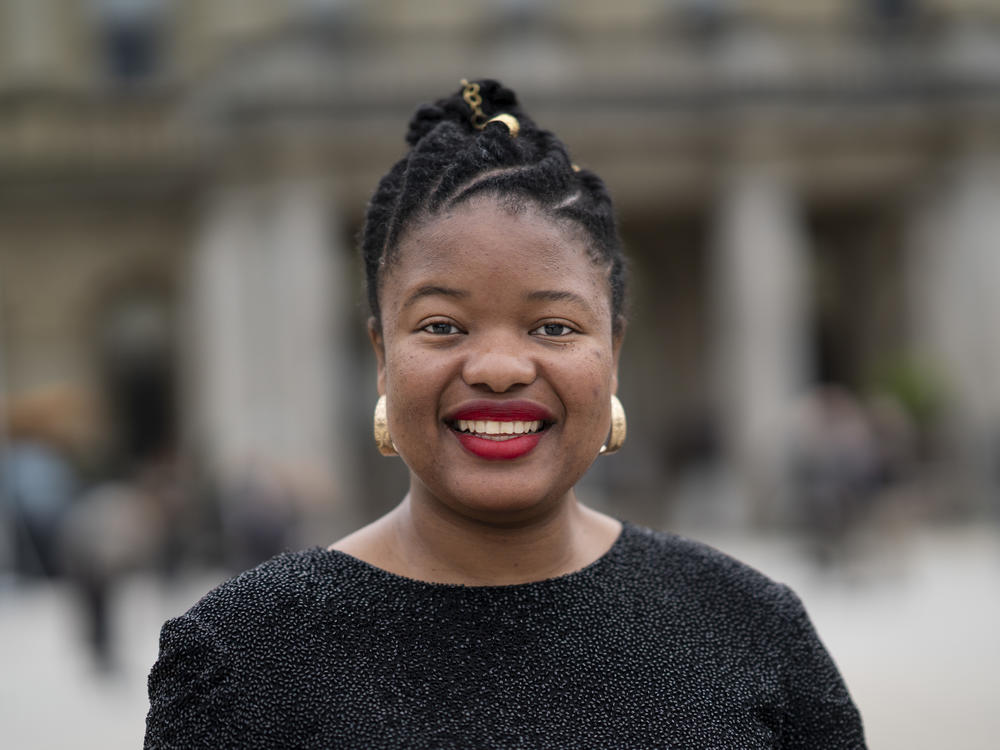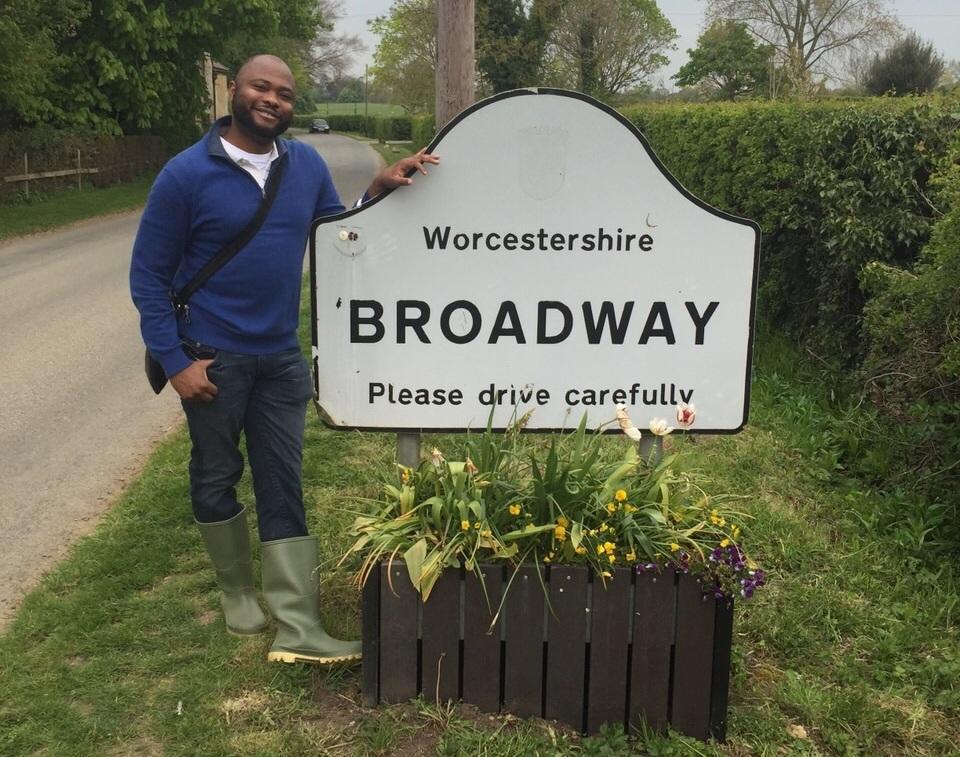Section Branding
Header Content
My brother made it in Lagos — and taught me lessons about my life in London
Primary Content
I only have one brother. Chinaza is ten years older and so in my earliest memories of him, he was already a teenager. "Leave my room" is a phrase he uttered several times to me.
I remember him as loud but nerdy. He didn't have many friends and he didn't have a date for prom. He was 15 when he left Nigeria for boarding school in the U.K., which would have made me around 5. I was potty-trained but still learning how to read. I hadn't lived long enough for us to have much in common.
We met properly when I was a young adult and he was taking his first steps into a career in private equity. By this time, I was in boarding school in England and he had returned to Lagos to become a full-time "hustler," the name tag given to eager young entrepreneurs in Lagos. In Lagos, it's natural to have more than one job. I have friends who are lawyers by day and make-up artists, wig sellers and DJs in the evenings. Chinaza was no different. In addition to his 9 to 5 private equity job, he and a few friends started a film production company that would go on to produce films for the Nigerian cinema, Netflix and Amazon Prime.
I've always been curious about Chinaza's move to Lagos. How did he hack it after living the soft life abroad? The infrastructure more or less works in England. There's a free health service, constant electricity and a decent public transport system. What I take for granted in London can be a luxury in Lagos.
My curiosity is tinged with self-interest. Every few years, I grow discontent with my predictable life as a writer in London and wonder if I should move back to Lagos, where all the action seems to be happening. Music, film, fashion and art from the city is spreading across the globe. If you're creating anything today, surely Lagos is the place to be.
I worry I no longer have what it takes to cope with the erratic power supply, rising crime rates and endless traffic jams that make up daily life in Lagos. And yet, it's the city that has fed my imagination and the stories I tell as a writer. In Lagos, everything is heightened.
But can I live at that feverish pitch for longer than a 3-week holiday? What does Chinaza think? I want to know.
After talking to Chinaza for an hour, I realize that there are quite a few things about my brother I don't know. I've assumed that Chinaza got his determination from Lagos but listening to him tell his story, it seems that he got some of that grit from coming abroad. At university in America, he was no longer the smartest kid in the room and after his postgraduate degree from the U.K., he didn't get the swishy job he was expected to. His failure to make a success of life abroad didn't dent his confidence but it taught him perseverance.
I do find it interesting that Chinaza doesn't even wonder if race might have been a factor in his failing to get a job after he graduated. On paper at least, he was the perfect for the corporate jobs he applied to. After all, he has two degrees from elite institutions.
The more I listen to him speak about events that are over a decade old, the more I question my brother's interpretation of events. The discourse around structural racism in the early oughts wasn't as nuanced as what we have today. A 2019 study carried out by Oxford University found that "applicants from minority ethnic backgrounds have to send 60% more applications to get a positive response from an employer than white British candidates." Perhaps there was more to why Chinaza didn't get a job than just mere chance.
And yet I find my brother's point of view strangely liberating. He refused to be crushed by failure and instead let the obstacle redirect his path. His confidence shielded him from any long-term effects of passing through a structurally racist hiring system.
When he moved back to Lagos, his psyche was baggage-free. He knew what he had to offer and if you failed to hire him, that was your loss not his. This extreme confidence is typical of Lagosians. Sometimes, I find my own self-confidence eroded by living in London where I am an ethnic minority. I need some of that Lagos mentality. If you doubt my abilities because of my race, that's your problem not mine. I know who I am. I know what I'm capable of. If you don't recognize it, gerrarhere as Lagosians put it — get out of here.
During our conversation, Chinaza narrates a near death experience with a danfo, the ramshackle buses used to transport a large portion of Lagos's population. The blasé manner in which he recounts the story is typical of Lagosians. There's a certain badge of honor to almost dying and then carrying on as if nothing has happened.
Lagosians don't just have a stiff upper lip. Their upper lips are made of concrete. But at what cost? When I hear such stories, I wonder if half the city should be in therapy.
What do I love most about my trips to Lagos? I lose my self-consciousness there. If I stand out, it's for something other than my skin color. Also, my sense of what is possible expands when I am in Lagos. Maybe it's because I've watched my brother build a world class production company with distribution deals on multiple global platforms. There are not that many Black producers in Britain that you can say that about.
After two hours of talking to Chinaza, I still don't know if I should move to Nigeria. My brother isn't an oracle. He can't peer into the future and tell me if I will thrive in Lagos. But our conversation has settled something restless in me. My desire to move to Lagos has always stemmed from a Texas-sized FOMO that I am missing out creatively by living outside of my city of birth. After talking to Chinaza, I'm stumbling toward the realization that creativity is not about geography: It's about belief. Living in Lagos won't make the work I produce more worthwhile. Believing in my craft will. What I need is inside me not outside.
Born in 1991, Chibundu Onuzo grew up in Lagos, moved to the U.K. in 2005 and signed her first book deal at 19. Published in 2012 by Faber, her, first novel, The Spider King's Daughter, won the Betty Trask Award and was shortlisted for the Dylan Thomas Prize and the Commonwealth Book Prize. Her second novel, Welcome to Lagos, was published in 2017 and her most recent novel, Sankofa, was selected by Reese Witherspoon as her October 2021 book club pick.
Copyright 2022 NPR. To see more, visit https://www.npr.org.


